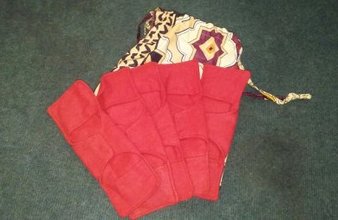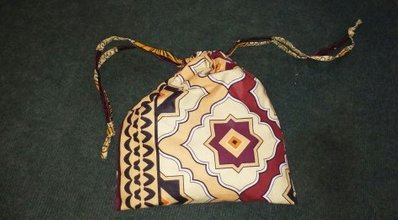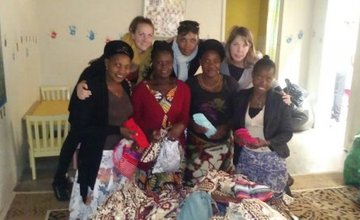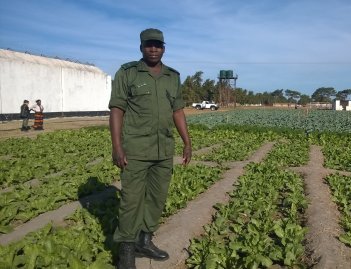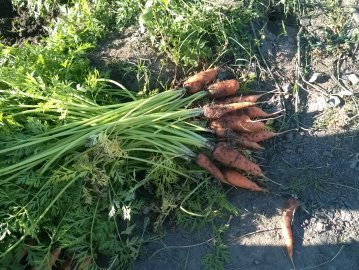News 2016
August 2016
The Ubumi Model now being implemented in Kamfinsa State Prison in partnership with In But Free
We are nearing full implementation of the Ubumi Model in Kamfinsa State Prison.
The Ubumi Model entails a focus on inmate volunteers to support the ill and the vulnerable, a focus on empowerment and self organisation as well as skills training. Volunteer inmates are trained in nutrition, health, hygiene and and basic nursing skills, so that they can help and support the seriously ill inmates.
The volunteers in Kamfinsa are now selected and all the necessary stakeholders mobilised. In the coming month full implementation will take off.
The Children's project is up and running with food being delivered for mothers, pregnant women and children. The children are playing almost every day in the play corners with new and quality second hand toys donated from Denmark.
July 2016
Menstrual pads donated to female prisoners
One of the big problems faced by women in prison, is how to stay hygienic during their menstrual periods. Health staff report very unsanitary conditions, which lays the ground for many infections. Infections not really seen in outside of prison affect women inside prison due to the unhygienic conditions. Therefore, it is of high priority to support the women to stay healthy, hygienic and to make them more comfortable during periods. Everything relating to hygiene is not solved, but keeping clean during periods is an important step in the right direction.
To help the women, Ubumi has initiated a collaboration with a group of widows from the organisation Chikumbusu, who have sowed a couple of hundred of sanitary pads for the female prisons. We will donate pads to more prisons, but yesterday every single woman (82 persons) in the menstruating age in Mukobeko Female Section received a pack of pads. Ubumi donated the detergent to keep them clean. The inmates were so pleased and relieved. Below pictures of the pads and of the wonderful women at Chikumbusu together with Ubumi staff.
June 2016
More patients than ever receive food supplements and we have now expanded to a big area outside prison to be able to provide the whole prison population with vegetables every week
Project Update: The Ubumi managing director has just returned from Zambia upon conducting a monitoring exercise of Ubumi's project in Mukobeko Maximum Prison.
The project is exceedingly succesful. We are now feeding 66 patients everyday and a few more in cases of emergencies. The same 66 patients receive support by our inmate caretakers to get their medication, to bath and to wash their close. The sick cell is cleaned regularly. Dysentery outbreaks are kept in check through provisions of chlorine. We provide ongoing treatment for malnutrition. The Officer in Charge is deeply dedicated to improve health, and in collaboration with him, we are now able to grow a large field of vegetables outside the prison, and to have a chicken project with 400 chickens inside the prison. Beginning this month, all 2085 prisoners will receive vegetables 3 times a week. This will make a major difference to the health of all inmates.
May 2016
We are plased to inform that we have been granted funding by the Obel family Foundation to expand our work to four prisons in all. We will also have funds to conduct a mental health mapping exercise, and to support health systems and coordination. Ubumi has received 7.4 million Danish Kroner over the next 3 years. We are grateful and humbled by the donation.
February 2016
Update on project for the seriously ill in Mukobeko Maximum Security Prison
Our projects are proceeding very well thanks to the recent funding increase. 50 patients are now undergoing treatment for beriberi (severe malnutrition disease). We have managed to almost triple the amount of food supplements given to our most-in-need patients (and therefore we have been able to take in many more patients). Next week, our health, nursing and nutrition courses will commence for all the volunteer inmate carers (who work to provide food, care and nursing services for the patients).
This will make a major difference for our patients and our carers.

